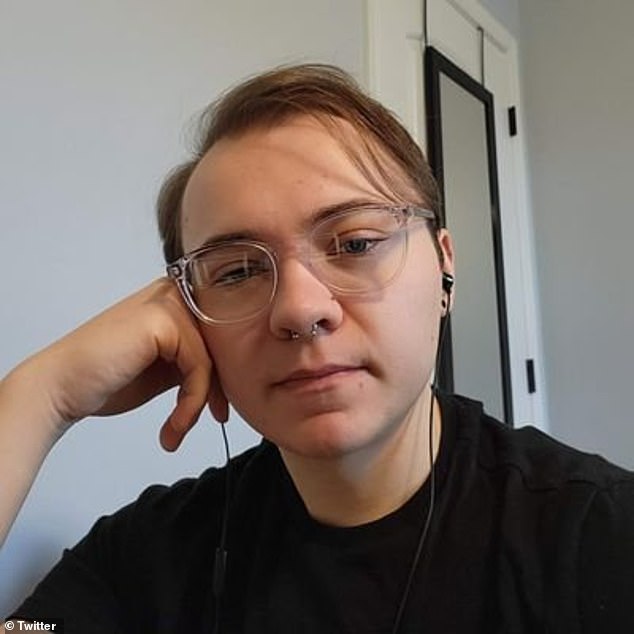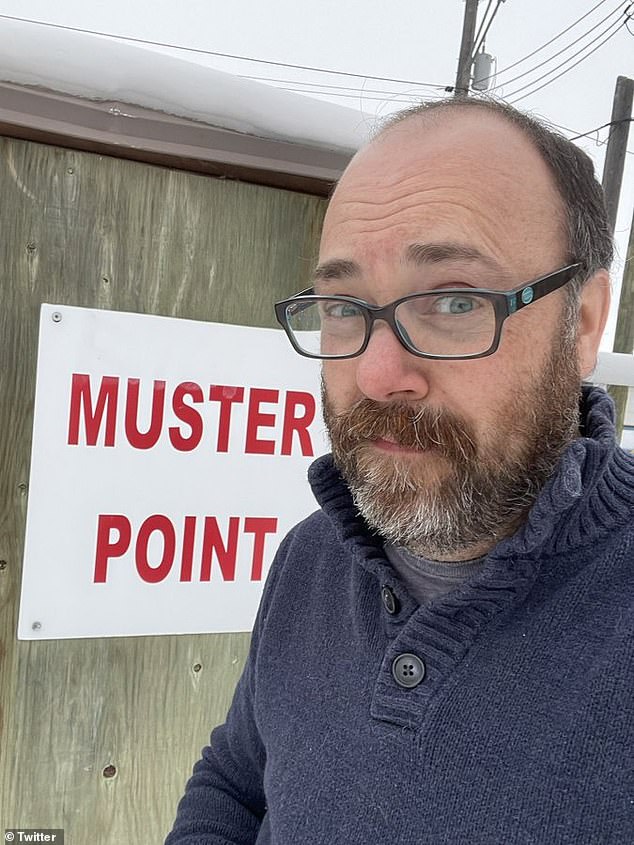Gay teens who couldn’t come to terms with their sexuality share how they removed their breasts and genitals in false hope that becoming transgender would ‘cure’ them, as concerns mount over ‘affirming’ care for children
Gay teenagers disturbed by their own sexuality have described deciding life would be better as transgender and having surgery – only to regret it several years later.
The youth said that in retrospect, drastic surgical procedures were offered without sufficient thought or consideration.
One of them said they were abused online by trans rights activists when, after living as a trans man for five years, they realized they wanted to become lesbians again. Another, who began transitioning from male to female at the age of 15, is now campaigning for a ban on surgical procedures under the age of 25 for anyone who has not had psychotherapy first. Another, who grew up as a lesbian in a conservative community, convinced herself that life would be easier as a trans man and underwent a double mastectomy – only to return to living as a woman six years later.
Studies cited by The New York Times showed that many teens who struggled with their identity and sexuality eventually found peace: 80 percent of gender dysphoria in children resolves itself by puberty, and 30 percent of people who use hormone therapy stop taking it within four years, according to the newspaper.
Activists calling for respect for trans children protest in Washington DC. But young people who spoke to The New York Times expressed concern about the ease with which they received life-changing treatment

Kasey Emerick, a 23-year-old woman and detransitioner from Pennsylvania, had a double mastectomy at age 17 and lived as a trans man for five years
However, the effects of hormone therapy, including infertility, are often irreversible.
Kasey Emerick, a 23-year-old woman and detransitioner from Pennsylvania, told The New York Times that she saw life as a trans man as a better alternative to homosexuality.
“I transitioned because I didn’t want to be gay,” she said. ‘I believed homosexuality was a sin.’
Emerick, who grew up in a conservative Christian church, told her mother at age 15 that she was gay.
Her mother told her this was probably a response to her father, who was convicted of repeatedly raping and assaulting her between the ages of four and seven.
At the age of 16, Emerick was caught texting a girl, and her mother took away her phone: Emerick was subsequently admitted to a psychiatric hospital.
Emerick convinced himself in the hospital: “If I had been a boy, none of this would have happened.”
She said she found websites for transgender advocates online and was able to “take the other side.”
At age 17, after two 90-minute consultations, she was approved for a double mastectomy – despite the anxiety, depression, suicidal tendencies, panic attacks and ADHD she also suffered from.
“I’m thinking, ‘Oh my God, I’m going to have my breasts removed.’ I’m 17. I’m too young for this,” she recalled, but said she went ahead with the surgery.
“The transition felt like a way to take control of something, when I couldn’t control anything in my life,” she told the newspaper.
Emerick lived as a trans man for five years, but then realized she wasn’t happier and began detransitioning – despite online threats from trans activists.
“I thought my life was over,” she said. “I realized I had been living a lie for more than five years.”
One man, Paul Garcia-Ryan, lived as a woman from age 15 to 30 and underwent surgery on his buttocks.

Paul Garcia-Ryan, now 32, has set up an organization to help other young people considering surgery to transition – what he underwent and what he regrets
He transitioned and is now, at the age of 32, a psychotherapist in New York, where he treats young people suffering from gender dysphoria.
Garcia-Ryan told The New York Times he believes that no one under the age of 25 should undergo surgical procedures unless they have seen a psychotherapist.
He said he wanted to identify as a trans woman because he couldn’t bear to be gay.
“It was much less threatening to my psyche to think that I was a heterosexual girl born in the wrong body – that I had a medical condition that could be treated,” he said.
He said that when he sought medical help at age 15, the clinic immediately confirmed his own thoughts, rather than questioning them.
He said he had surgery in college, but suffered serious complications from the surgery and the hormones, which made him reconsider his decisions.
“You are forced to believe these slogans,” he said. ‘Evidence-based, life-saving care, safe and effective, medically necessary, the science is established – and none of it is evidence-based.
“When a professional affirms a gender identity for a young person, he or she implements a psychological intervention that narrows a person’s sense of self and closes off the options for thinking about what is possible for them.”

Aaron Kimberly, a 50-year-old trans man living in British Columbia, transitioned at the age of 33, but argues that too many young people are not adequately questioned before undergoing the procedures
Grace Powell, who grew up in a conservative community in Grand Rapids, Michigan, said she became convinced that her sexuality would be “solved” by living as a trans man.
She had a double mastectomy the summer before college and then attended Sarah Lawrence College as a transgender man named Grayson.
Powell, now 23 and detransitioned, told The New York Times that she wished more questions had been asked before opting for the life-changing procedures.
“I wish there had been more open conversations,” she said.
“But I’m told there is one cure and one thing you can do if this is your problem, and it will help you.”
Aaron Kimberly, a 50-year-old trans man living in British Columbia, transitioned at age 33 and lives happily as a man.
But he said he left his job at a clinic that treated gender dysphoric youth because he felt there wasn’t enough emphasis on mental health treatment, ahead of surgical options or hormones.
He subsequently founded the Gender Dysphoria Alliance and the LGBT Courage Coalition to advocate for better gender care.
“I realized something had gone completely off the rails,” he said.
